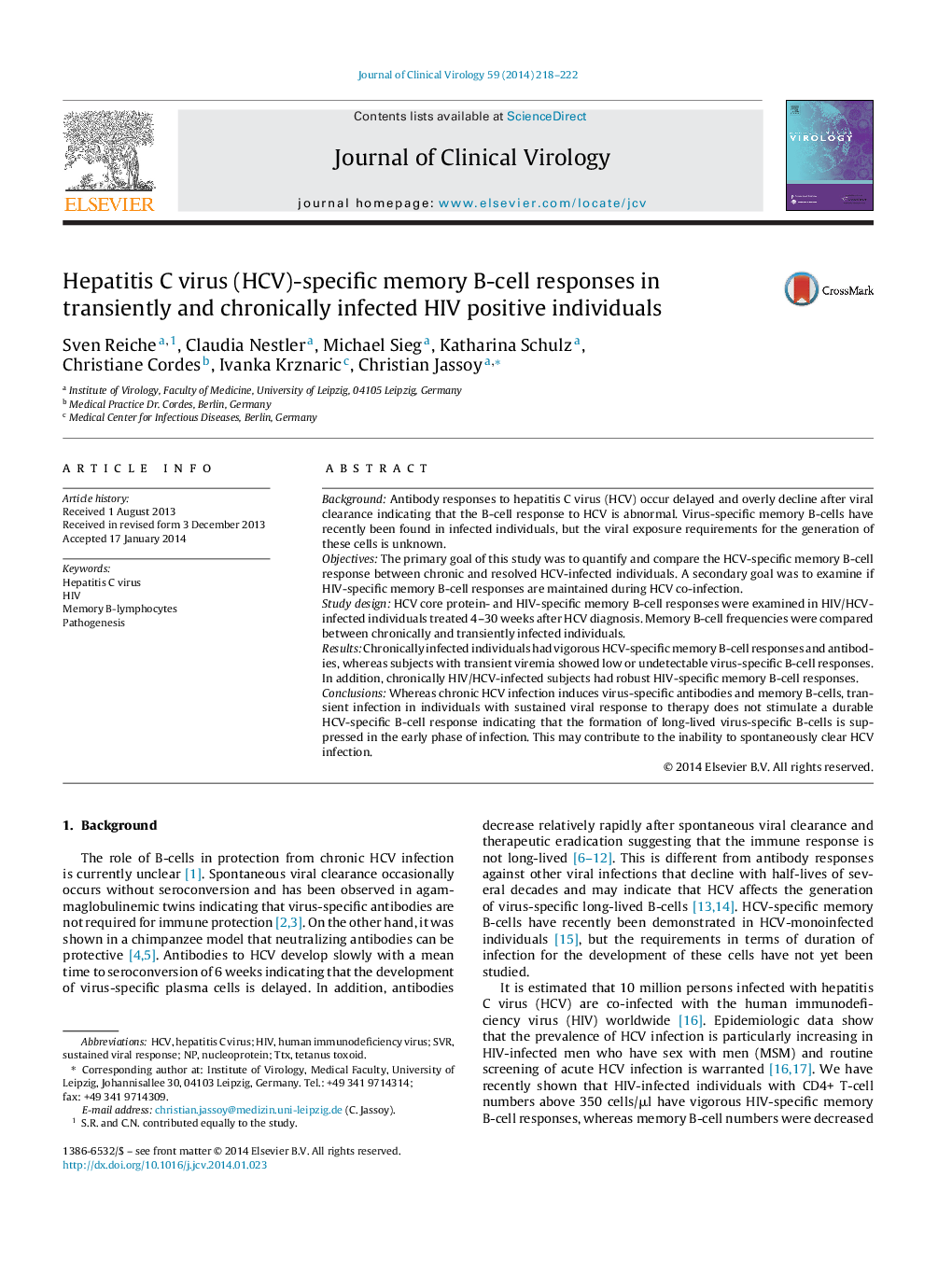| Article ID | Journal | Published Year | Pages | File Type |
|---|---|---|---|---|
| 3368977 | Journal of Clinical Virology | 2014 | 5 Pages |
BackgroundAntibody responses to hepatitis C virus (HCV) occur delayed and overly decline after viral clearance indicating that the B-cell response to HCV is abnormal. Virus-specific memory B-cells have recently been found in infected individuals, but the viral exposure requirements for the generation of these cells is unknown.ObjectivesThe primary goal of this study was to quantify and compare the HCV-specific memory B-cell response between chronic and resolved HCV-infected individuals. A secondary goal was to examine if HIV-specific memory B-cell responses are maintained during HCV co-infection.Study designHCV core protein- and HIV-specific memory B-cell responses were examined in HIV/HCV-infected individuals treated 4–30 weeks after HCV diagnosis. Memory B-cell frequencies were compared between chronically and transiently infected individuals.ResultsChronically infected individuals had vigorous HCV-specific memory B-cell responses and antibodies, whereas subjects with transient viremia showed low or undetectable virus-specific B-cell responses. In addition, chronically HIV/HCV-infected subjects had robust HIV-specific memory B-cell responses.ConclusionsWhereas chronic HCV infection induces virus-specific antibodies and memory B-cells, transient infection in individuals with sustained viral response to therapy does not stimulate a durable HCV-specific B-cell response indicating that the formation of long-lived virus-specific B-cells is suppressed in the early phase of infection. This may contribute to the inability to spontaneously clear HCV infection.
